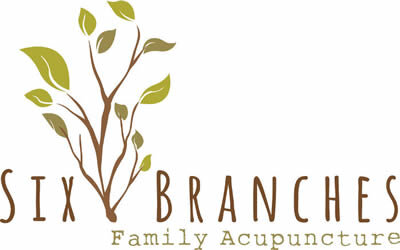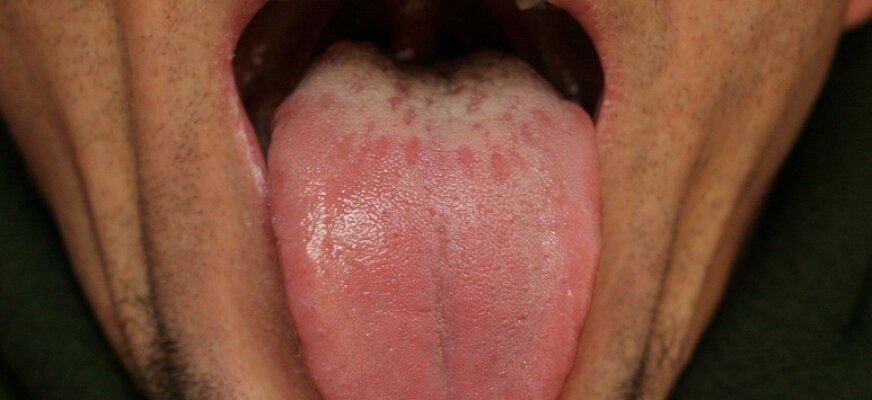Chinese medicine is in the news a lot because it has great success in helping women who have been unable to get pregnant. Acupuncture and herbal medicine have been used to help women get pregnant into their 40's, with or without IVF. Whichever method you are using to try to get pregnant, there are a lot of strengths that acupuncture and herbal medicine bring to the fertility puzzle.
Read moreLet Acupuncture Help You Quit Smoking
Quitting smoking is easier said than done. When you're ready to take that leap, acupuncture is there to catch you. Acupuncture and herbal medicine can support you every step of the way.
Read moreOpen Up and Say Aaahhh... Tongue Diagnosis in TCM
WHY do you want to look at my tongue? What does an ideal tongue look like? What does my tongue show? Find answers to all these questions and more in this post about different tongue presentations we commonly see.
Read moreChinese Medicine Makes Sense Of Irritable Bowel Syndrome
Irritable Bowel Syndrome is a chronic and debilitating gastrointestinal disorder that fits into the category of 'functional' diseases in Western medicine. This basically means that, while there are clear and present symptoms for the patient, Western medicine has not yet figured out the cause of the distress. This kind of disorder ('functional', a wide range of symptoms across systems, partly connected to emotions), is exactly the kind of situation where Traditional Chinese Medicine shines forth. Plus, the British Dietetic Association recently published some dietary guidelines for sufferers of IBS.
Read moreChinese Herb "Chang Shan" May Prove Effective For Auto-Immune Disorders
Chinese herbalists have been using bark, roots, seeds, and flowers to treat serious medical conditions for over 2,000 years. In modern times, pharmaceutical companies have made big money by isolating certain compounds from plants and replicating them synthetically. It is within this context that I want to highlight a new study from Harvard School of Dental Medicine that has isolated molecular properties in the Chinese herb Chang Shan, and found a use for it in treating auto-immune disorders like Multiple Sclerosis, Rheumatoid Arthritis, and Inflammatory Bowel Disease.
Read moreNo! Sleep! 'Til ...
3818482747_a55121a034_b
Are you falling asleep easily? Are you staying asleep? Do you have dreams that wake you up? Do you feel refreshed in the morning? Acupuncturists will always ask you about your sleep because it gives us insight into your body's imbalances.
TCM has a lot to say about sleep and sleep difficulties, and insomnia is one of the common conditions we treat. In a small-but-promising placebo-controlled study, acupuncture has also been shown to treat sleep apnea. Prescription medications for insomnia may be helpful on an occasional short-term basis, but they can have unwanted consequences that include mild addiction risk, immune system effects, and a 'rebound effect', where sleep becomes worse after stopping the use of medication. Traditional Chinese Medicine's approach, however, is non-addictive and addresses the underlying imbalances that are causing your sleep disturbances.
If you're someone who suffers from insomnia, there are some common causes of sleep disturbance that you can address on your own:
Too much stimulation in the hours before bed. Exercising, working on the computer, or watching a stimulating movie too close to bed time can definitely affect your sleep. Try setting a cut-off time for electronics at least an hour before bed, and try to get exercise before 7PM. Get to bed around 10:30 so that you're asleep by Gallbladder time at 11 PM.
Not enough stimulation during the day. Many people get to the end of the day and feel a sense of anxiousness or lack of completion. If this describes you, take a look at your day and ask "What needs do I have that aren't being met during the daytime?" It may be a physical need for exercise, or it may be another kind of need likemeaningful connection to others, creativity, or inspiration. There may be a need for security or safety that isn't being met (which can look like worrying about bills, etc). You may not be able to change the circumstances of your life in one day, but taking the time to acknowledge these needs is the first step towards meeting them and being able to set them aside momentarily so you can get some shut-eye.
Too much heavy food or alcohol in the hours before bed. Try eating more in the daytime and a smaller meal at dinner. Also, try to finish eating before 7 PM to give your body some time to digest before bed.
Too much caffeine consumption during the day. Try to cut back on your caffeine consumption (especially coffee), and avoid caffeinated beverages after noon.
Low levels of Vitamin D. Vitamin D levels outside the range of 60-80, either low or high, can affect the quality of your sleep. Many people today have low Vitamin D levels and don't realize it, so get your D25OH checked the next time you get a blood test. More importantly, get outside at least once a day!
A few other things to consider:
Light stimulates the brain to wake up, so finding a way to block light out can help you sleep better.
A drop in body temperature signals sleep time for your body. We've all heard about having a warm cup of milk before bed. Doing that warms and comforts the body, but then the subsequent drop in body temperature 20 minutes later is part of what signals the body to get sleepy. You can also achieve this by taking a warm bath before bed. It's also a good idea to keep your bedroom somewhat cool, while staying warm under enough blankets. The colder temperature of the air will also help you feel sleepier.
Try some Sleeping Qi Gong. First, do these light, calming movements to help you relax and shake off the stress of the day. Once you've done those, lie in bed on your back and breathe in deeply. Let your breath go all the way to the area below your belly button. Feel your belly rise and fall with your breath. Then, imagine that your breath is coming in through all the pores in your body. Feel your breath come in and go out through your arms and legs. (If that feels overwhelming, just focus on the sensation of breath going in and out of your nose.) Stay focused on the breath entering and leaving your body and you'll be drifting off to sleep in no time!
Start by trying these approaches. If these aren't helping, you may also have an imbalance in your body that your local Chinese medicine practitioner can help you address with herbs and acupuncture! Acupuncture and herbal medicine can help to relax your body and address the imbalances behind your sleep issue.
Have other ideas for dealing with insomnia that have worked for you? Has TCM helped you have better sleep? Leave a comment below to share it with the rest of us!
(Photo credit: Chelsea Oakes)

This work is licensed under a Creative Commons Attribution-NonCommercial-NoDerivs 3.0 United States License.






